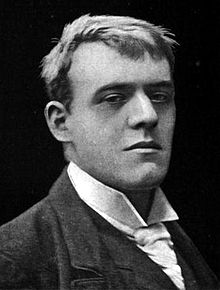This Week in History
 |
| America: A Catholic Review of the Week Vol. 13 No. 13 (1915) |
Now
and again it’s fun to look back on history and wonder what the hot topics of
the day were. For the first installment of This Week in History we’ll be
focusing on the week of July 10th, 1915; specifically, what was
mentioned in volume 13, number 13 of America:
A Catholic Review of the Week.
As
a weekly Catholic journal of opinion, topics included: social justice, liturgy,
music, world news, editorial reviews, education, sociology, and much more. The USF Archives holds
the first forty-five volumes of this journal, which has been continuously published
since 1909.
As
you might imagine, the issue focused on the circumstances and events of World War I. In news bulletin style, the issue highlights the movements of German troops in
France as they make their way to Verdun. It reads:
“The
Crown Prince according to reports is in command, and large bodies of troops are
said to be gathering for an new assault that has the isolation of Verdun for
its objective….Already Verdun is surrounded on three sides, and if the Germans
could succeed in forcing their way south from Binarville, …they would
necessitate the evacuation not only of Verdun but of a large part of Lorraine”
(pg. 313).
In
1916, the Battle of Verdun was one of the lengthiest, and some say greatest, battle in
world history. Other aspects of the war detail the decline in French birth
rates since the start of the war, German Catholics showing their patriotism at home, and British casualties at the front.
 |
| Joseph Hilaire Pierre Rene Belloc (1870-1953) |
Under the Topics of Interest section are brief essays from various Catholic persons
of the time, expressing opinions about books, songs, or Catholic
misconceptions. The prominent review for this issue was written by Joseph Hilaire Pierre Rene Belloc (1870-1953), a poet, writer, politician, and staunch Roman Catholic. “An Open Letter
to H.G. Wells” was Belloc’s attempt at reviewing the newest book from the father
of science fiction. Belloc writes:
“A
review is either a summary, telling people what is in the book, or a judgment
of that book, or a mixture of both. Now your book upon the First and Last Things contains so much of a human being, and is so
full and free from repetition that I don’t see how it would be possible to
summarize it, except as one summarizes a character or an historical period by
reading over and over again, and by leaving one’s judgment to the process of
time” (pg. 317).
Even
with this admiration for Well’s writing, Belloc took the rest of his essay to
debate the growing divide between what he calls two bodies of thought:
“Catholicism, and the other is that which you see shaping around you.” (pg.
318) This initial criticism would lead to Belloc and Wells’ disagreements in the 1920s about the validity of natural selection, and Wells' book Mr. Belloc Objects (1926).
That's all for This Week in History, but stay tuned for more installments of this new series on the University of St. Francis Archive's blog.


Comments
Post a Comment